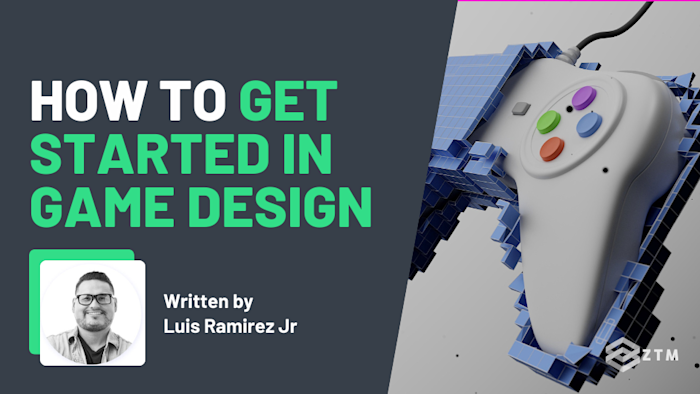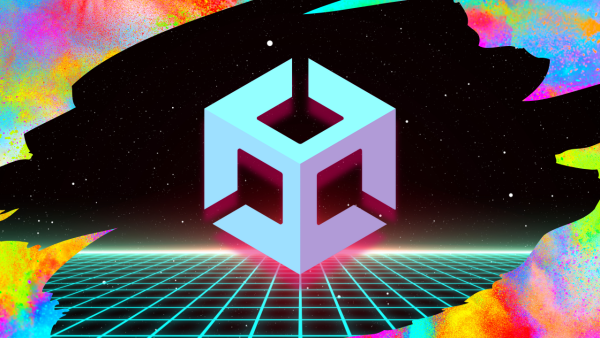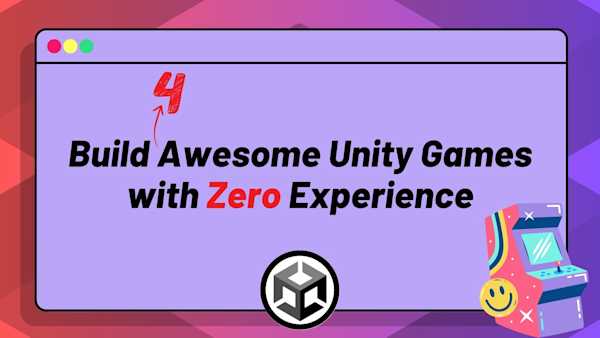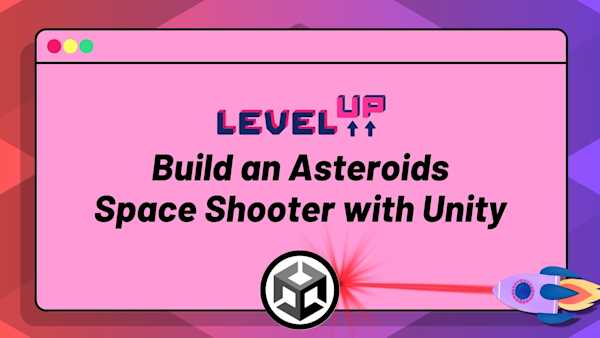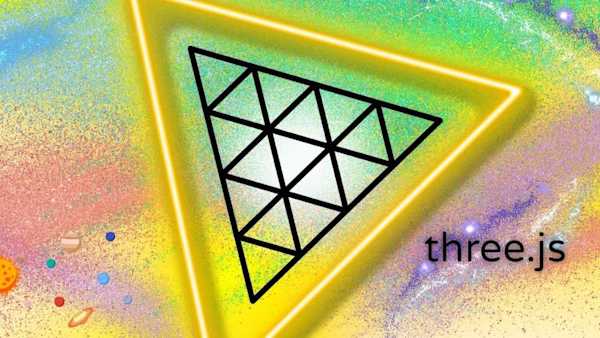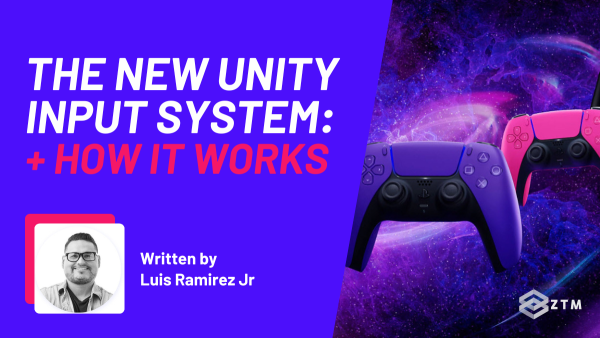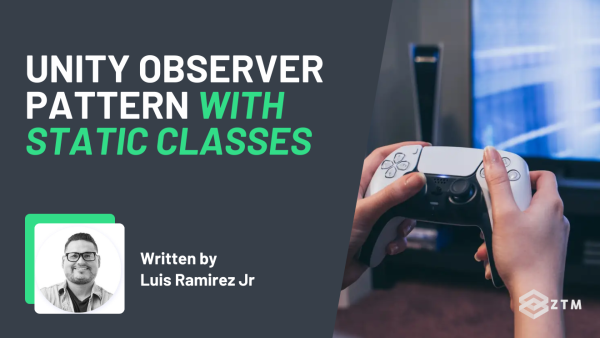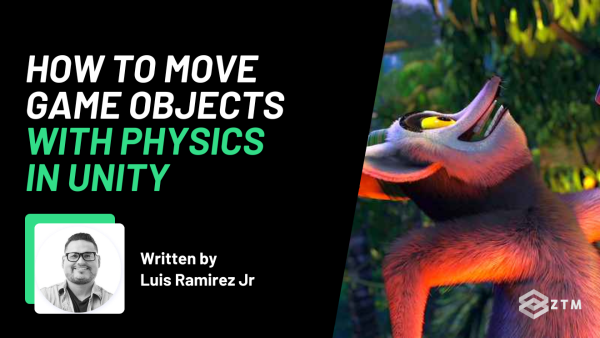“Stop playing video games! You’ll never make money with that”.
How little our parents knew…
The gaming industry is bigger than ever, with revenue in the global games market projected to hit $691.31 billion by 2029, with over 3 billion gamers worldwide.
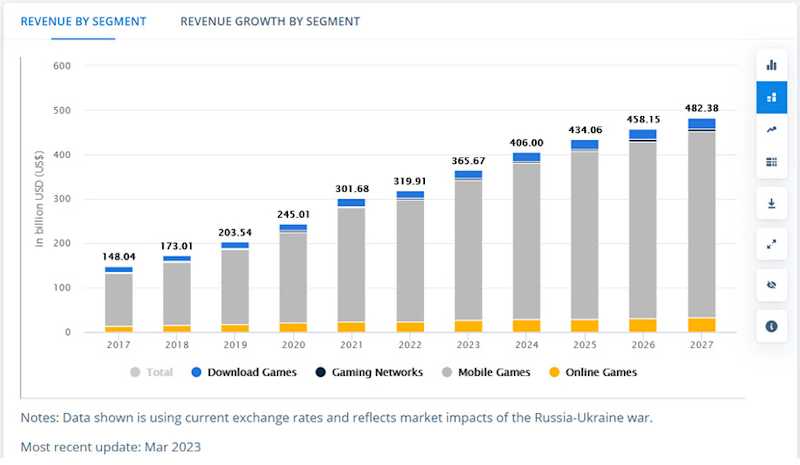
Clearly, there’s money to be made in this field, but how do you get started?
Better yet:
What's the best path to get hired in Game Design?
Do you need a degree?
What skills do you need to know?
And where can you learn all of this?
If you want to make the move from a budding Twitch streamer to a $100K+ / year game designer, I cover all this and more in this guide, so let’s dive in.
What does a game designer do?
A game designer is pretty much the architect of a computer game and everything in it.
They’re responsible for:
Creating the initial concept and overall vision
The rules, gameplay, and overall structure
The characters, levels, and challenges
They achieve this with the use of high volumes of caffeine, various planning techniques, critical thinking skills, along with specific development tools to bring their ideas to life 😛.
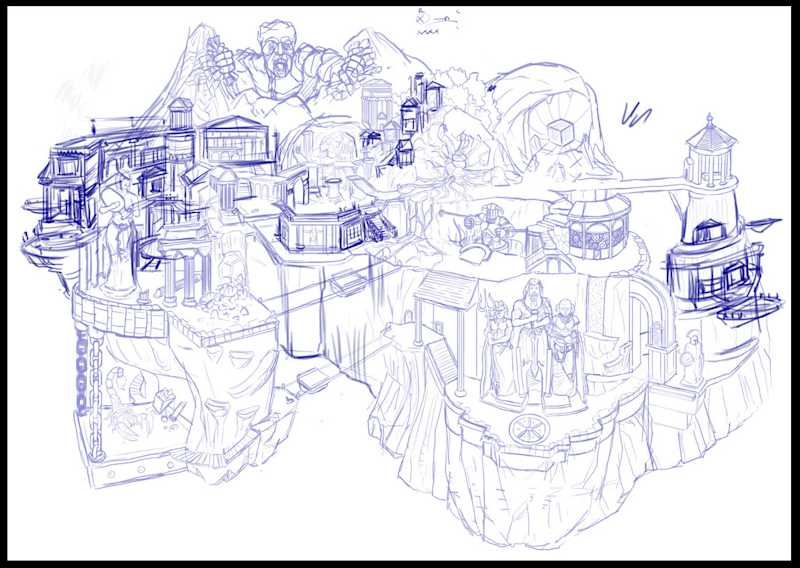
In addition to designing the gameplay and mechanics, the game designer also plays a key role in helping to create the game's visual and audio elements.
They work closely with artists, animators, and musicians to ensure the vision meets the end product.
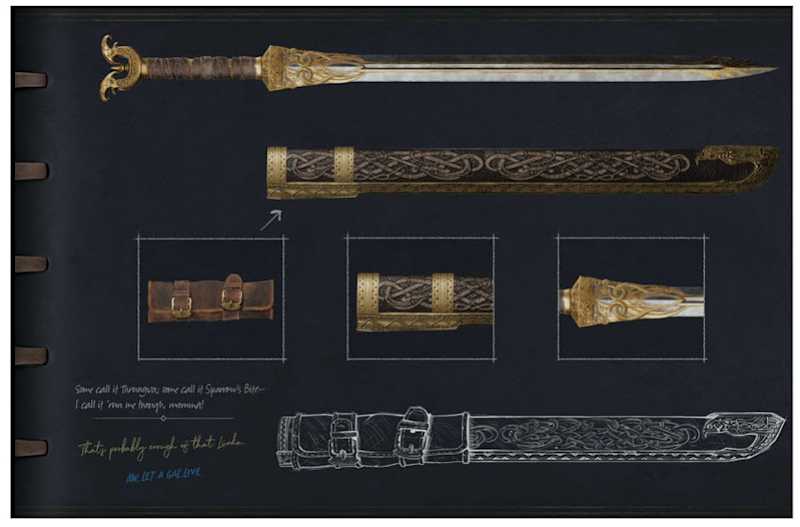
And the cherry on top?
A game designer is also responsible for playtesting the game to ensure that it’s fun, engaging, and meets the overall goals of the game, before taking any relevant feedback and making adjustments.
TL;DR
It’s a lot to organize, but the Game Designer gets to build entire interactive worlds, which sounds pretty damn amazing to me!
What's the difference between a game designer and a game developer?
This can be confusing as both roles sound similar, but here's the best way to remember the differences:
Like we said above, the Game Designer is responsible for the overall design and ideas for the game. They make all the choices, have the core vision, and are the architect of everything that goes into the game
While a Game Developer is someone who take's the designer's vision and implement it to make it real. Simply put, the Developer builds the game, that the Designer designs.
What's the average salary for a Game Designer?
We went ahead and looked at open jobs on Indeed and LinkedIn, and Web3.career 2026 report. From that we got an average salary of around $99,000 for entry level game designers.
Become a Game Developer
10 milestones 8 courses
Step-by-step roadmap where you'll learn to code and build a portfolio.
Curated curriculum of courses, workshops, challenges, projects, and action items.
Become a Game Developer from scratch and actually get hired.
Earn on average per year:
$99,039
US salary data collected from Indeed, LinkedIn, and Web3.career 2026.
Not bad right?
While more senior roles are around the $150k a year range:
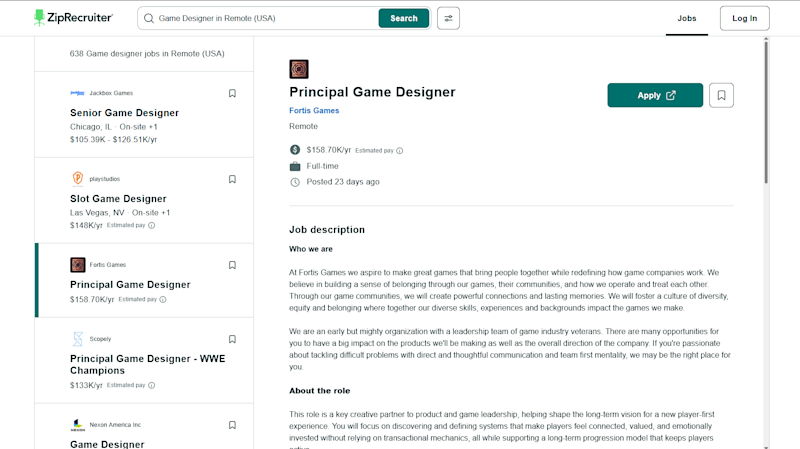
Do you need a degree to become a game designer?
Nope! The tech industry is a unique place in that as long as you have relevant skills, some experience with your own projects, and can answer the interview questions, then you can be hired for the job without a degree.
In fact, a large segment of employees across a almost all tech fields have never got a CS degree. Some of them even run entire departments and companies.
This is part of the beauty of a career in tech.
You are measured based on your actual skills and output rather than what school you went to. If you can do the work and deliver results, then you can get hired and succeed.
How to learn Game Design?
There are so many ways to learn and get started in tech. If I was to start from scratch, this is the best path that I recommend.
Step #1. Learn ‘critical thinking’ for Game Design basics
Before you can build a game, you need to understand each of the basic elements that make up a game, such as mechanics, game play, and storytelling.
Let’s get into the building blocks that you should be focusing on first, before you learn to code:
Mechanics: These are the rules and systems that govern how the game works. This includes the game's controls, (like the ability to change directions mid-air), and the game’s physics, (to achieve realistic behavior and special effects like falling debris or how a flag whips in the wind)
Game play: This is the overall experience of playing the game. This includes the challenges and obstacles that the player must overcome, as well as the rewards and progression system
Storytelling: This is the narrative aspect of the game, which includes the game's characters, the landscape, and the overall plot of the game
User experience: This is about the game's aesthetic and how it is presented to the player. It also incorporates the game's interface and how easy it is to navigate and understand
Balance: This ensures that the game is not too easy or too hard. You want to make sure that all the elements of the game are well-balanced and provide a challenging and enjoyable experience for the player
Player's motivation: You need to have a deep understanding of what motivates the player to keep playing the game, what keeps them engaged, and what makes them lose interest altogether
Testing and iteration: Continual play-testing and iteration to refine the gameplay and the mechanics, improve the user experience, and fix any bugs or glitches that are discovered
As a game designer, you need to have a solid understanding of these basics in order to create engaging and well-designed games.
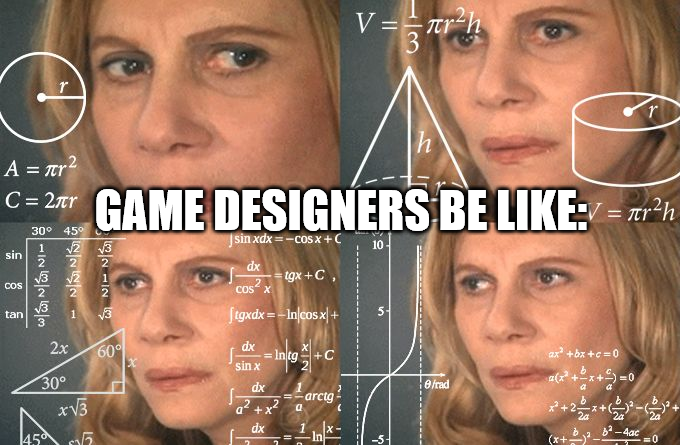
When you’re designing a game, here are some questions you should ask yourself continually throughout the game design process:
What is the overall goal of the game?
Who is the target audience for the game?
What kind of gameplay mechanics and controls will the game have?
How will the player progress through the game?
What visual and audio elements will be used in the game?
How will the game monetize?
How will the game be marketed?
How will the game be updated?
How will the game be supported?
What are the technical constraints of the game?
For example
A game designer who is designing a mobile puzzle game should be asking themselves:
What type of puzzles will be included in the game?
How will the player progress through the levels?
How will the player earn points and rewards?
How will the game handle player progress and data?
Whereas a game designer who is outlining a multiplayer, first-person shooting game should be asking themselves:
What type of weapons and equipment will be included in the game?
How will the player progress through the game?
How will the game handle player ranking and matchmaking?
How will the game handle player progression and customization?
Does that make sense?
The questions that a game designer should ask when designing a game will depend on the type of game they’re creating and the game’s overall goals.
Critical game design thinking is a bigger topic than I can cover here, but learning to think like this and asking yourself these types of questions will help with planning a larger, cohesive vision.
Step #2. Learn to use Game Development software
Once you have a solid understanding of game design concepts, the next step is to learn how to use gaming development software to bring your idea to life.
Now, there are various software packages you can choose from, and of course, each one has its own strengths and weaknesses (most of them can be used to create both 2D and 3D games).
Some of my top picks include:
Unity
Unity is a popular cross-platform game engine that is widely used for both 2D and 3D game development.
What like?
Pokemon Go, Among Us, Disco Elysium, Hearthstone, and many more are all built on Unity so it's a legit tool to learn if you want to get started in this industry.
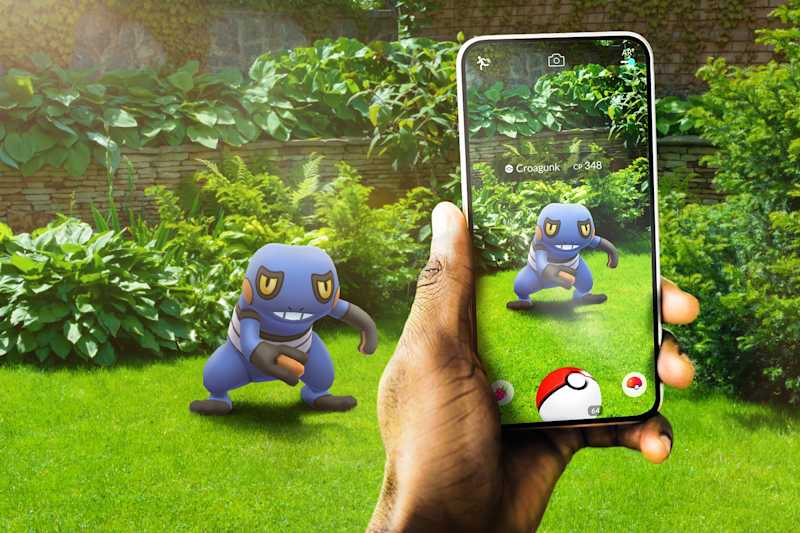
I actually have a course that teaches you Unity and how to build games in it:
Unreal Engine
Unreal Engine is another powerful game engine that is popular for creating high-quality 3D games.
Fortnite, Final Fantasy 7, and Batman: Arkham City were all built on Unreal engine.
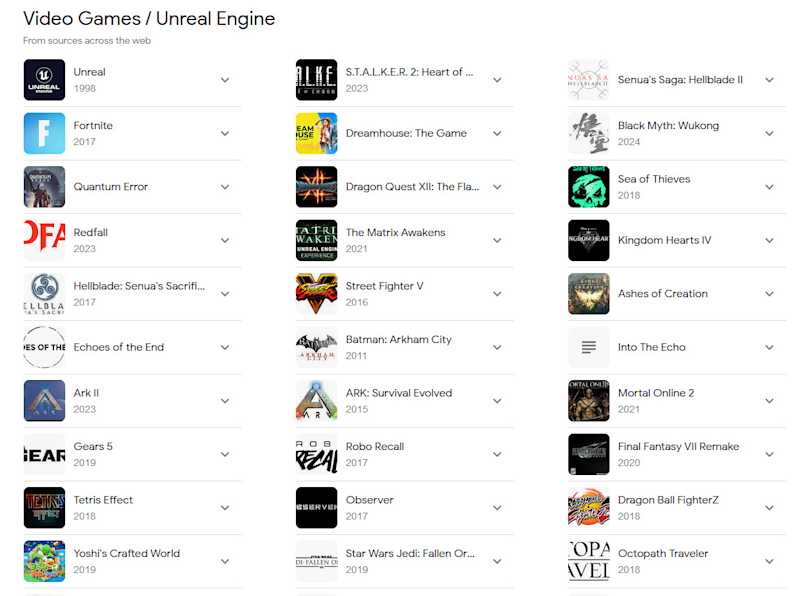
Godot
Godot is a free and open-source game engine that is popular for both 2D and 3D game development. It uses GDScript, which is a Python-like language, and also supports C#, C++, and other languages.
Because it’s open-source and high-level, a lot of indie games are built using Godot.
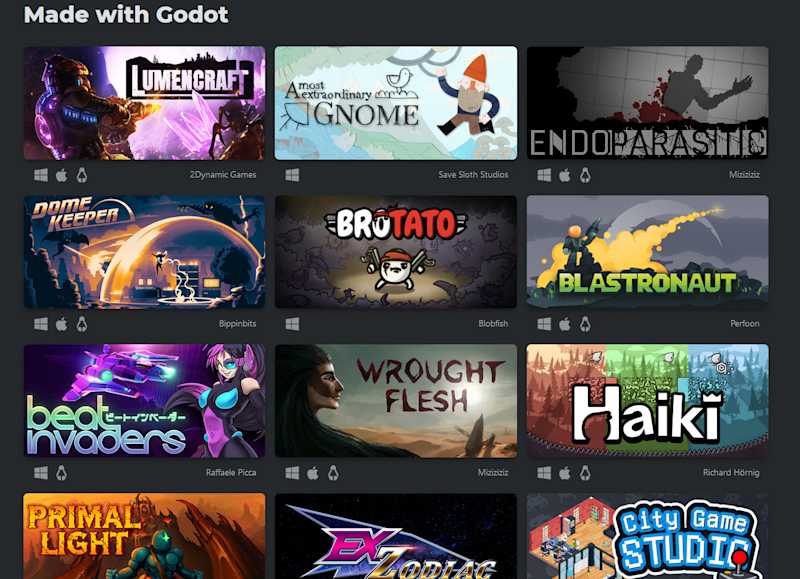
GameMaker Studio
GameMaker Studio is a game development software popular for creating 2D games. It uses its own proprietary language, called GameMaker Language or ‘GML’. It also supports other languages such as C# and C++.
You can check out all of the games built on GameMaker here.
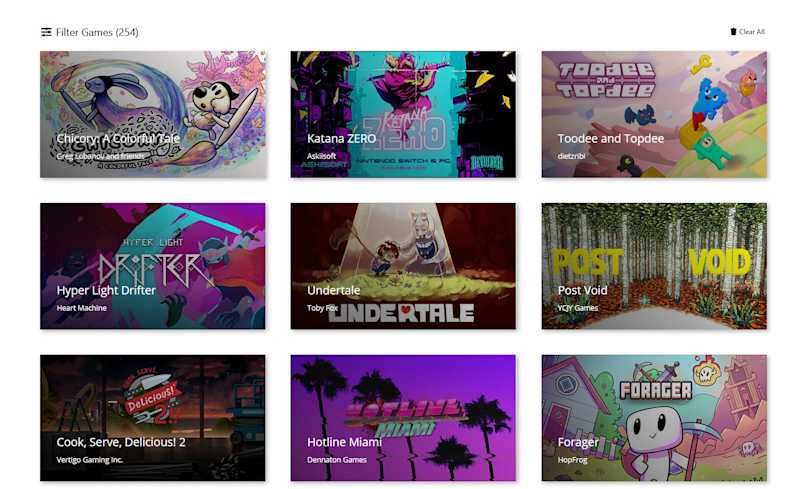
Other gaming development platforms
These are some of my top picks but there are many options available to you. A good rule of thumb is to choose a language depending on:
The specific needs of your project
The programming language or coding style you prefer
And your overall personal preference of platforms
Some companies will take on Game Designers with experience in one language or framework, but then have them build in their own proprietary language.
For example
Clash of clans is a ridiculously successful game, that is built on its own proprietary platform.
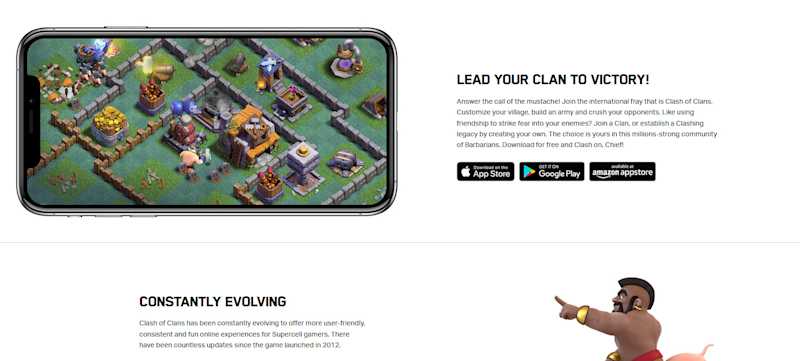
Regardless of which language you choose, the next step is to start learning how to use it!
But don’t waste your time trying to learn all of them. Chances are high that you will pick up others as you go and build on your previous experience.
The key is to simply choose one to start with and stick with until you have real-world experience or employers wants you to learn something else (and you'll be getting paid to learn in this case!)
Step #3. Build a project portfolio to get hired
So far you’ve learned to code, and built some course projects.
Now you need to build a portfolio so you can share these with potential employers.
Fellow instructor Daniel Schifano covers all this in his course:
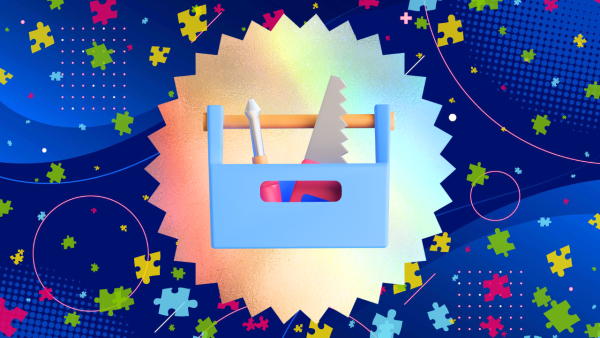
Don't skip this!
You would be blown away by the number of people who have skills and projects in hirable areas but are passed over because they haven’t bothered to update their Linkedin, Github, or personal portfolio site.
However, don’t just add any old random thing in though.
Your portfolio should include examples of your best game design work, along with explanations of the design process, and context on why you made certain choices.
For example
Game design documents: These documents should include your game design concepts, mechanics, and user interface designs. This can consist of design documents, flowcharts, wireframes, and other materials that demonstrate your design process and thought process
Game prototypes: Include examples of games that you have designed and developed, whether they are complete games or prototypes. These should demonstrate your ability to design and implement gameplay mechanics, user interfaces, and other core game systems
Concept art and visual design: Include examples of concept art and visual design that you have created for games. This can include character designs, environment concepts, and other visual elements that demonstrate your ability to create visually appealing designs
Audio and music: If you have experience creating audio or music for games, include examples of this work in your portfolio. This can include sound effects, background music, and other audio elements that demonstrate your ability to create immersive audio experiences
Video footage: Include video footage of your games to give potential employers a sense of the gameplay, mechanics, and overall experience of your games
Design Analysis: Include a section of your portfolio that analyzes the design of other games, this can help to demonstrate your knowledge of game design, and your ability to think critically about the design of other games
Your process: Include a section that explains your design process, this can be a great way to give potential employers an understanding of how you work, what you consider when designing a game, and your methodologies
Top tip:
If you’re currently applying for roles with specific skills, go ahead and reorganize your portfolio so that’s it's tailored to the specific job or company you’re interested in applying to.
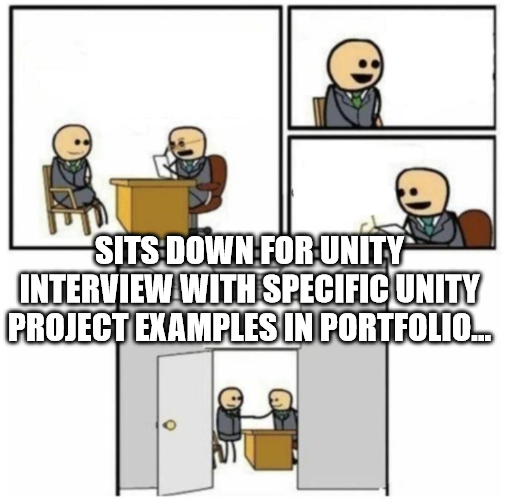
It requires more time and research but it will make you stand out from 99% of other applicants.
Why?
Well, it's obvious when candidates have done their homework and put in the extra effort. It shows that you’re familiar with their work and that you have the specific skills they're looking for.
Speaking of wowing interviewers...
Step #4. Apply your new skills
If you really want to stand out and further build your skills, then I highly recommend building other projects.
Fellow ZTM instructor, Mike Sirman has 2 great mini courses where you can build 5 other games and test your skills:
Definitely give them a look, build them and add them to your portfolio. However, if you really want to stand out then you need to build your own games.
Don’t freak out!
I'm not suggesting that you build the next Call of Duty.
Instead, take the games you've built so far and customize them so you can build your own thing. They don't need to be huge projects, just simple concepts to show you've done more than the average person who has copied course projects.
Just get started, make mistakes, and figure it out as you go. The key is just to be applying what you’ve learnt and aim for progress over perfection!
Step #5. Supplement your technical skills with soft skills
As a Game Designer, you need to be able to work within a team.

You can be the best game designer and coder in the world, but if you can’t work within a team environment, then your tenure at any company will be short-lived, and it’s why most tech companies will also run a behavioral interview for potential new hires.
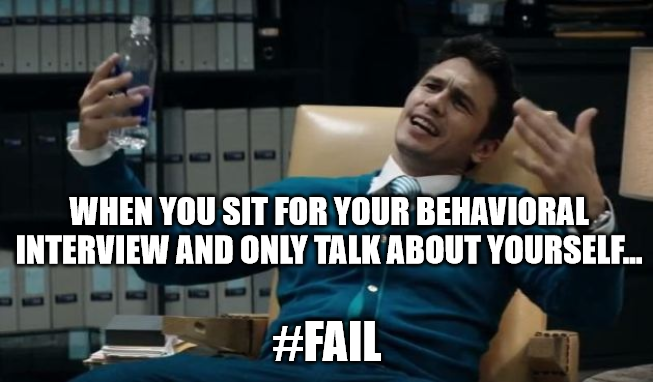
The goal of this final interview is to assess your ability to communicate, your skills at working in a team, and company culture fit.
A lot of people pass the early technical interviews only to fail at this point, which is why I HIGHLY recommend you improve your soft skills.
Communication: Game design is a collaborative process that involves working with a team of developers, artists, and musicians. Good communication skills are essential for effectively conveying design ideas, providing feedback, and resolving conflicts
Teamwork: Game designers must work closely with other members of the development team to bring their ideas to life. Teamwork skills help game designers to build positive relationships, share knowledge and ideas, and create a productive working environment
Creativity: Game design requires a lot of creativity and imagination. Game designers must be able to come up with unique and innovative ideas and think outside the box to solve problems
Problem-solving: Game development is a complex process that is full of challenges and obstacles. Game designers must be able to identify problems, analyze information, and come up with effective solutions
Adaptability: Game design is an ever-changing field that requires game designers to be adaptable. They must be able to adapt to new technologies, [changing market trends](https://www.sendx.io/blog/igaming-industry-trends-and-technology), and shifting project requirements
Time management: Game development often has tight deadlines, game designers must be able to manage their time effectively to meet these deadlines and make sure that the game is completed on schedule
These are the types of skills that you'll need if you want to get promotions and advance your career faster.
Bonus tips!
By this point you should be able to get hired, but let’s look at some other ways you can continue to build experience and possibly earn an income before you land that Game Designer job.
Keep learning and experimenting
The game development and design field constantly evolves, so it's important to keep learning and experimenting with new techniques and technologies.
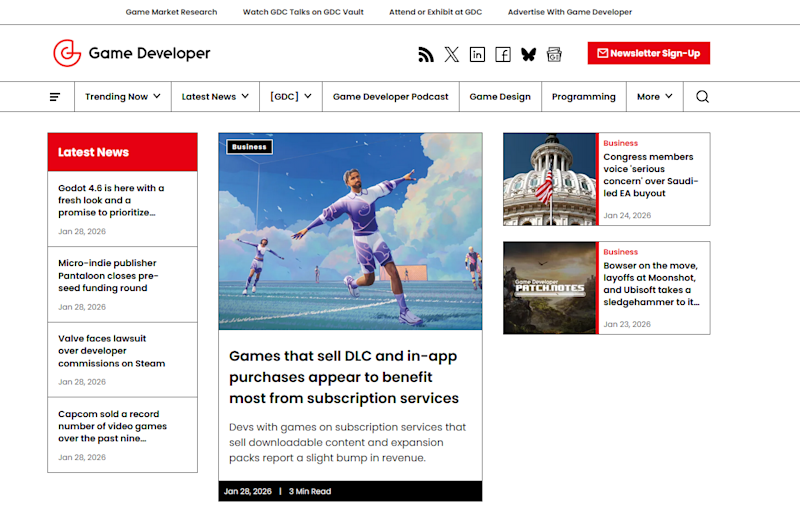
This is why reading the latest information and attending events helps. (Speaking of which...)
Attend a game jam
Game jams are short-term game development events where teams create games in a limited amount of time.
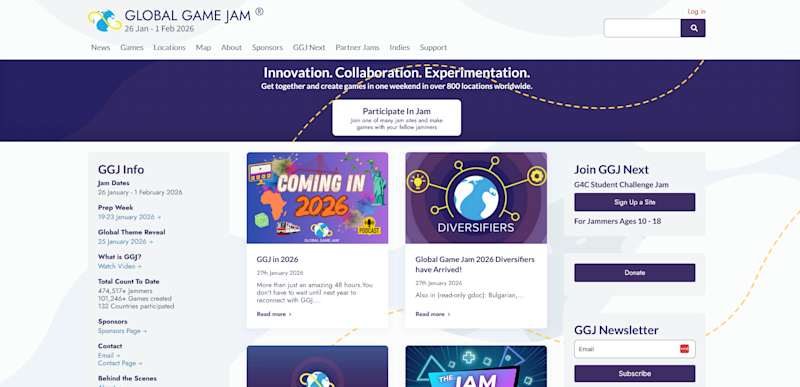
So not only are you gaining experience and working within a team dynamic, but you’re learning to work under pressure which forces time management and setting priorities.
Better still, you're also building your network so you can get recommended for open positions.
Start to specialize
Choose a specific area of game development or design to specialize in, such as level design, character design, or user interface design.
Specializing in a specific area will help you to develop more advanced skills and increase your marketability in the industry.
Play and analyze games
Play and analyze games from different genres and platforms. This will give you a better understanding of the game mechanics, gameplay, and overall design and help you to create better games.
By using a combination of these methods, you can refine your game development and game design skills and become a better game developer and designer.
Apply for paid internships
Look for paid internships or apprenticeships at game development companies or studios. You gain experience, build your portfolio, and get paid.
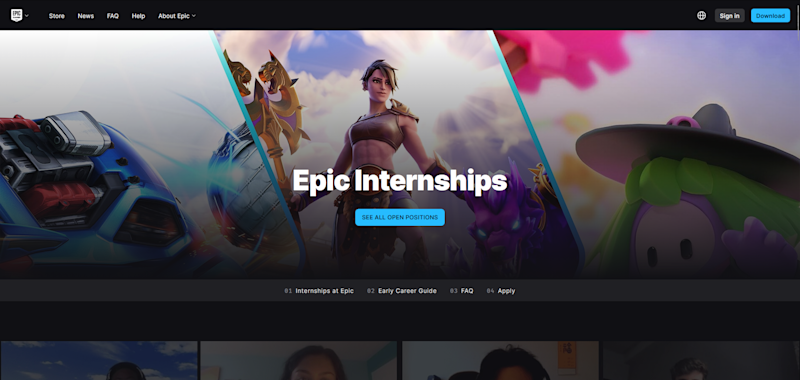
That’s the winning trifecta if you're just starting out.
(Not to mention internships usually lead to permanent job offers if you do a decent job).
Volunteer
If you can't find a paid internship, consider opportunities to volunteer on game development projects or take on independent projects (even in your spare time).
This can help you build that portfolio and experience to give you a better shot at landing paid roles.
Become a QA (Quality Assurance)
Want to get paid to play games?
Becoming a QA is actually a great way to get your foot in the door with companies.
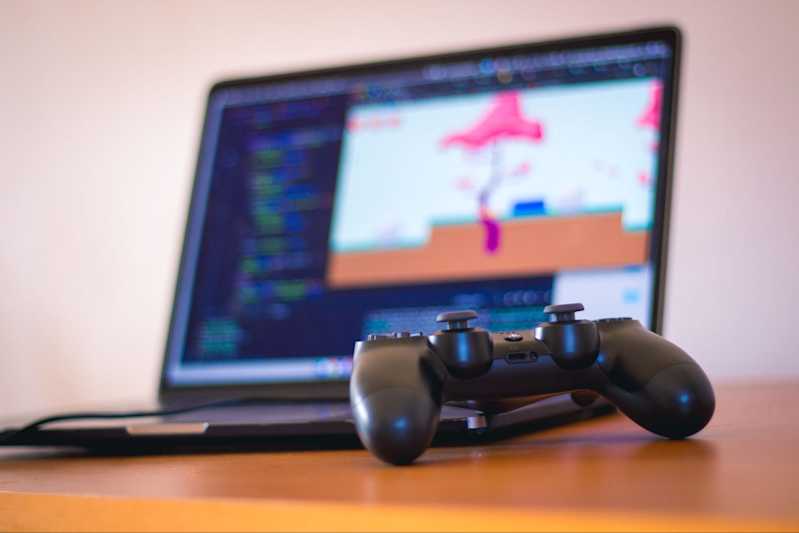
A QA plays an integral part of the game development process.
You’ll be responsible for:
Testing the game and providing feedback on various aspects of development such as: gameplay, mechanics, and user experience. This can help you to develop your critical thinking skills and master the art of giving valuable feedback to the development team
Pinpointing and reporting bugs, and any other issues that arise. As well as identifying and solving problems that occur within a game
Communicating your findings, or any necessary feedback and ideas, with the development team
But more importantly, it gives you the opportunity to play A LOT of different games, which can help you expand your knowledge of the games on the market, their mechanics, and current design trends.
Not only do you get paid well, but you get a deeper understanding of how games are made and get to witness the different stages of a game’s development, while also being ‘in-house’ when any developer or design roles open up!
Start learning Game Design today!
So what are you waiting for?
Follow the roadmap by clicking the button below, and you can start learning Game Design today
Become a Game Developer
10 milestones 8 courses
Step-by-step roadmap where you'll learn to code and build a portfolio.
Curated curriculum of courses, workshops, challenges, projects, and action items.
Become a Game Developer from scratch and actually get hired.
Earn on average per year:
$99,039
US salary data collected from Indeed, LinkedIn, and Web3.career 2026.
Sure Elden Ring was great, but imagine how much cooler it would have been if you got to work on it!
Heck, what if you could be actively building and playing the newest version of it right now or in the next 6 months, while also getting paid for it!
Sounds good right?
So start learning today, and then hit me up on Discord with some beta access codes to your latest creation 😀.
Best articles. Best resources. Only for ZTM subscribers.
If you enjoyed this post and want to get more like it in the future, subscribe below. By joining the ZTM community of over 100,000 developers you’ll receive Web Developer Monthly (the fastest growing monthly newsletter for developers) and other exclusive ZTM posts, opportunities and offers.
No spam ever, unsubscribe anytime
